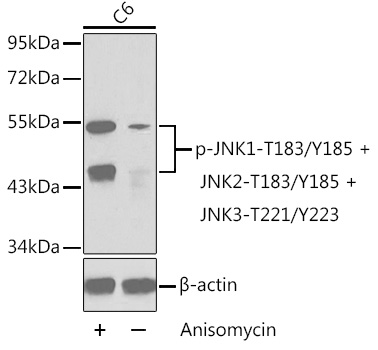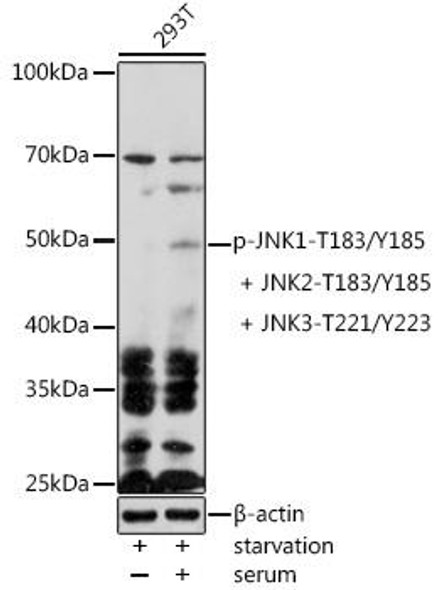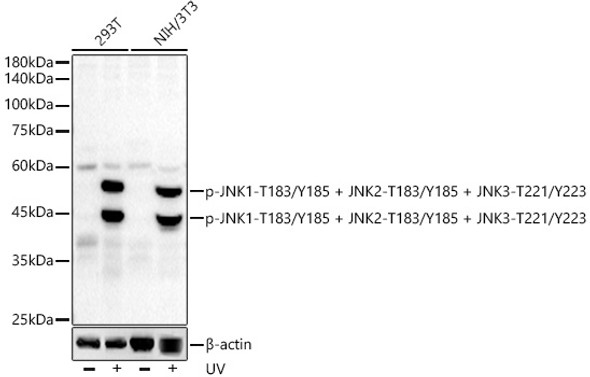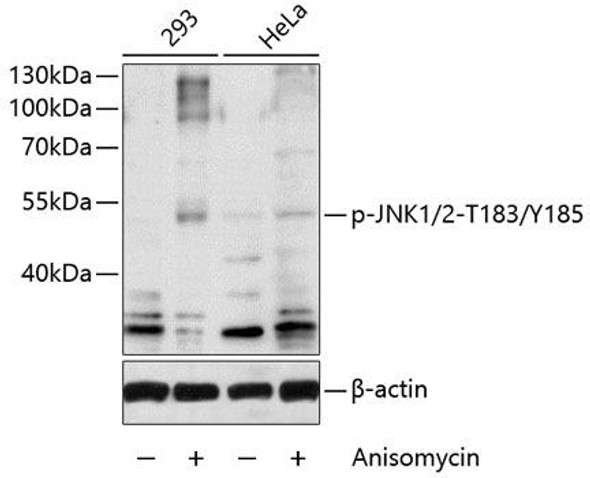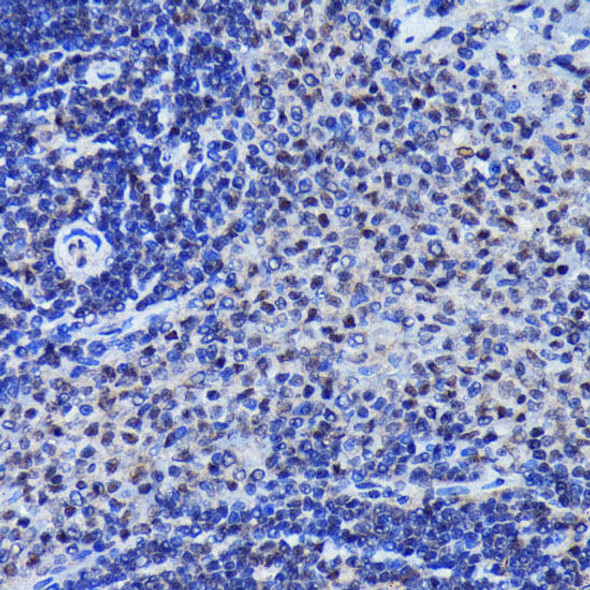Cell Biology Antibodies 16
Anti-Phospho-MAPK8-T183/Y185 + MAPK9-T183/Y185 + MAPK10-T221/Y223 Antibody (CABP0276)
- SKU:
- CABP0276
- Product Type:
- Antibody
- Applications:
- WB
- Applications:
- IF
- Reactivity:
- Human
- Reactivity:
- Mouse
- Reactivity:
- Rat
- Host Species:
- Rabbit
- Isotype:
- IgG
- Research Area:
- Cell Biology
Description
| Antibody Name: | Anti-Phospho-MAPK8-T183/Y185 + MAPK9-T183/Y185 + MAPK10-T221/Y223 Antibody |
| Antibody SKU: | CABP0276 |
| Antibody Size: | 50uL, 100uL |
| Application: | WB IF |
| Reactivity: | Human, Mouse, Rat |
| Host Species: | Rabbit |
| Immunogen: | A phospho specific peptide corresponding to residues surrounding T183 of human JNK1 |
| Application: | WB IF |
| Recommended Dilution: | WB 1:500 - 1:2000 IF 1:100 - 1:200 |
| Reactivity: | Human, Mouse, Rat |
| Positive Samples: | C6 |
| Immunogen: | A phospho specific peptide corresponding to residues surrounding T183 of human JNK1 |
| Purification Method: | Affinity purification |
| Storage Buffer: | Store at -20°C. Avoid freeze / thaw cycles. Buffer: PBS with 0.02% sodium azide, 50% glycerol, pH7.3. |
| Isotype: | IgG |
| Sequence: | Email for sequence |
| Gene ID: | 5599/5601/5602 |
| Uniprot: | P45983/P45984/P53779 |
| Cellular Location: | |
| Calculated MW: | 35kDa/44kDa/48kDa/27kDa/52kDa |
| Observed MW: | 46kDa, 54kDa |
| Synonyms: | JNK1/JNK2/JNK3 |
| Background: | The protein encoded by this gene is a member of the MAP kinase family. MAP kinases act as an integration point for multiple biochemical signals, and are involved in a wide variety of cellular processes such as proliferation, differentiation, transcription regulation and development. This kinase is activated by various cell stimuli, and targets specific transcription factors, and thus mediates immediate-early gene expression in response to cell stimuli. The activation of this kinase by tumor-necrosis factor alpha (TNF-alpha) is found to be required for TNF-alpha induced apoptosis. This kinase is also involved in UV radiation induced apoptosis, which is thought to be related to cytochrom c-mediated cell death pathway. Studies of the mouse counterpart of this gene suggested that this kinase play a key role in T cell proliferation, apoptosis and differentiation. Several alternatively spliced transcript variants encoding distinct isoforms have been reported. [provided by RefSeq, Apr 2016] |


